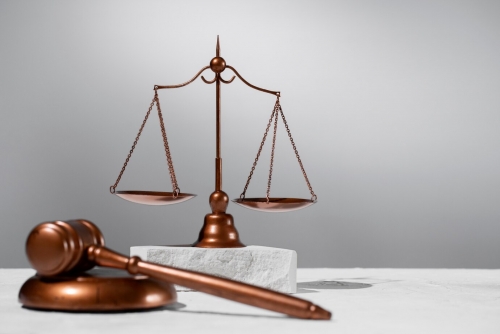The Court of Cassation in Manama, Bahrain has recently upheld a two-year prison sentence for two lawyers who were found guilty of perjury. The lawyers had falsely sworn under oath in a commercial dispute case, claiming to have performed services they did not, in order to claim a total of BD100,000 from the victim. The Court of Appeal had previously ruled that the evidence presented did not support the lawyers’ claims. It stated that the victim had not authorized them to sell or lease company shares, and the individual employment contract signed between the victim and the first lawyer only stipulated the sale of shares and facilitating the sale process in two companies.
The Court further highlighted that there was no evidence to suggest that the victim had entrusted the lawyers with leasing the company shares, which contradicted the oath they had falsely sworn. Additionally, the lawyers claimed to have participated in a settlement process between the victim and a private hospital, despite not playing any role in discussions, signing contracts, or intervening in the settlement. They had sworn that the victim had agreed to pay them BD50,000 each, but the evidence showed that the victim had only agreed to pay this amount to the first lawyer, contingent on his successful completion of the share sale facilitation process.
The Public Prosecution had charged the lawyers with perjury on March 15, 2020, for falsely swearing under oath before the High Appeals Court. This false oath led to a ruling in their favor, which ultimately resulted in their conviction. The Court of Cassation’s decision to uphold the two-year prison sentence sends a strong message about the consequences of perjury in legal proceedings. It serves as a reminder that honesty and integrity are essential in the practice of law, and that false testimonies will not be tolerated.
The case serves as a cautionary tale for legal professionals about the importance of upholding ethical standards and maintaining the trust of clients and the judiciary. It also highlights the gravity of making false claims under oath and attempting to deceive the court for personal gain. The lawyers’ actions not only undermined the credibility of the legal system but also led to serious consequences for their own professional and personal reputations.
Moving forward, this case underscores the need for legal professionals to adhere to the highest standards of integrity and honesty in their practice. It highlights the importance of conducting thorough investigations, presenting accurate evidence, and upholding ethical principles at all times. By upholding the rule of law and holding legal professionals accountable for their actions, the judiciary plays a crucial role in maintaining the integrity of the legal system and upholding justice.
In conclusion, the Court of Cassation’s decision to uphold the two-year prison sentence for the lawyers found guilty of perjury serves as a clear warning against dishonest practices in legal proceedings. It reinforces the importance of truthfulness, integrity, and ethical conduct in the practice of law. Legal professionals must learn from this case and commit to upholding the highest standards of honesty and integrity in their work. By doing so, they can help maintain the credibility and trustworthiness of the legal system while promoting justice and fairness for all.































